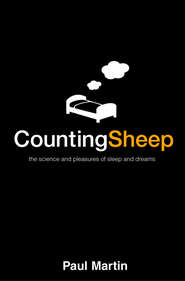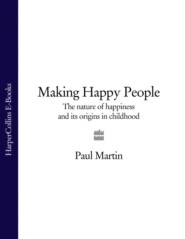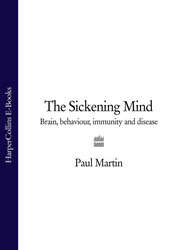По всем вопросам обращайтесь на: info@litportal.ru
(©) 2003-2024.
✖
Sex, Drugs and Chocolate: The Science of Pleasure
Автор
Год написания книги
2019
Настройки чтения
Размер шрифта
Высота строк
Поля
How to escape (#litres_trial_promo)
TEN Beastliness (#litres_trial_promo)
Free fun for one? (#litres_trial_promo)
Or the stairway to Hell? (#litres_trial_promo)
A hazardous habit (#litres_trial_promo)
Pornography (#litres_trial_promo)
ELEVEN Four Drugs (#litres_trial_promo)
Alcohol (#litres_trial_promo)
Tobacco (#litres_trial_promo)
Caffeine (#litres_trial_promo)
Ecstasy (#litres_trial_promo)
TWELVE Gambling and Guzzling (#litres_trial_promo)
Gambling (#litres_trial_promo)
Guzzling (#litres_trial_promo)
THIRTEEN Disapproval and Prohibition (#litres_trial_promo)
Reducing harm (#litres_trial_promo)
FOURTEEN The Wily Hedonist (#litres_trial_promo)
Little but often (#litres_trial_promo)
Modest Pleasures (#litres_trial_promo)
Keep Reading (#litres_trial_promo)
End Notes (#litres_trial_promo)
Main Sources (#litres_trial_promo)
Bibliography (#litres_trial_promo)
Index (#litres_trial_promo)
Acknowledgements (#litres_trial_promo)
Other Works (#litres_trial_promo)
Copyright (#litres_trial_promo)
About the Publisher (#litres_trial_promo)
ONE The Pursuit of Pleasure (#ulink_1e9afd54-51d2-531f-b538-5cb463e09321)
The limits of pleasures are as yet neither known nor fixed, and we have no idea what degree of bodily bliss we are capable of attaining.
JEAN-ANTHELME BRILLAT-SAVARIN,
The Physiology of Taste (1825)
The heights of pleasure (#ulink_427b7c6a-0032-5011-88d1-24cfb1981070)
What is your idea of perfect pleasure? What if you could conjure it up at will and in unlimited quantities? How would you really feel after endlessly sipping rum-based cocktails on a palm-fringed tropical beach and having neglected body parts stimulated in ingenious ways? A bit bored and dissolute perhaps? Even eating chocolate in the bath will eventually pall.
Pleasure is a slippery beast. We know it when we feel it. Wanting more seems obvious. But what of the troubles it leads us into? What of the gluttony, drunkenness, obesity, guilt, debt and poor complexion? What of that segue from pleasure to addiction – that dreaded slide from ‘This is nice’ to ‘This is destroying me and I can’t stop’? Secular and religious authorities have tried throughout history to control the main sources of human pleasure. Above all, they have sought to constrain our sexual behaviour, our use of psychoactive drugs and what we eat. They seem to have shared Plato’s opinion that pleasure is the greatest incentive to evil.
My aim will be to explore the nature of pleasure and its unattractive alter ego, addiction. Along the way, we will look at the biological mechanisms that underpin pleasure and addiction, the subtle relationship between pleasure and pain, the surprisingly tenuous relationship between pleasure and happiness, and the neglected role of boredom in driving human behaviour. We will also inspect the lives of some real people who have taken their quest for pleasurable sensations to life-threatening extremes of hedonism. There will be sex and drugs of many kinds; and, of course, there will be chocolate. A central theme will be the fundamental distinction between pleasure and desire – the biologically ingrained difference between liking something because it gives us pleasure and wanting something because we have a desire for it. The twin forces of pleasure and desire lie at the heart of everything we do. We will see them at work in humanity’s relationship with the noble trinity of sex, drugs and chocolate.
Sex, drugs and chocolate are universal objects of desire. Each can become a focus for intense cravings. When used in the right way, all three have the potential to enhance mental and physical well-being. But they can also cause harm. Even sex has its hazards. Drugs are said by some to be uniformly dangerous substances that enslave you and then kill you, while chocolate, according to its critics, is sugary fat that will make you spotty and obese. (They are wrong.) All three sources of pleasure are constrained, to widely varying degrees, by social attitudes, religious doctrine and the law. And all three are, of course, capable of producing deep pleasure.
Sex in its many forms, both social and solitary, is a sublime delight enjoyed by virtually everyone at least once in a while. Even people who have sex for a living can still enjoy it. The twenty-first-century porn superstar Jenna Jameson talks in her memoirs of her undimmed enthusiasm for purely recreational sex, despite the wearying demands of her day job. When not performing in front of the cameras, she reportedly enjoys making love with her boyfriend in hotel swimming pools, department store changing rooms and restaurants across the USA. Giacomo Casanova’s long and eventful life was famously enriched by sexual pleasure. According to his memoirs, the eighteenth-century adventurer and voluptuary was as adept at giving pleasure as he was at taking it. Recounting a tryst with one of his myriad lovers, Casanova wrote:
She was astonished to find herself receptive to so much pleasure, for I showed her many things she had considered fictions. I did things to her that she did not feel she could ask me to do, and I taught her that the slightest constraint spoils the greatest pleasures. When the morning bells tolled, she raised her eyes to the Third Heaven like an idolatress thanking the Mother and Son for having so well rewarded the effort it had cost her to declare her passion for me.
Not everyone is a fan of sex, however. Johnny Rotten once described it as two minutes and fifty-two seconds of squelching noises. A few years later he claimed it had become more like five minutes, thanks to a new technique he had acquired.
The intensity of sexual pleasure is rivalled by few things in life, but intoxicating drugs are one of them. Like it or not, some of the most deeply pleasurable sensations ever experienced by humans, as well as some of the very worst, have been created by intoxicating drugs. One elderly Asian opium-smoker, whose words were captured for posterity by a nineteenth-century scholar, described his experience as being carried into the seventh heaven: he heard and saw things that words could not relay and felt ‘as though his soul soared so high above things earthly, during those precious moments of oblivion, as to have flown beyond the reach of its heavy, burdensome cage’. In similar vein (as it were), a fictional junky in Irvine Welsh’s Trainspotting declares that the sensations from injecting heroin are miles better than the best orgasm multiplied by twenty. The longer-term consequences are another matter, of course.
If it were true that the hit from mainlining heroin really is miles better than the best orgasm multiplied by twenty, then imagine how it feels while simultaneously plunging to earth at terminal velocity from a great height. This challenging form of recreational activity, known as pharma-diving, is imagined in Aniruddha Bahal’s novel Bunker 13. The fictional pharma-diver feels like a seer, soaring and swooping in heaven. He sees the ground rushing towards him but the act of pulling the ripcord is almost an afterthought, so deep is his tranquillity. Injecting yourself in a vein can be tricky during free fall, with only sixty seconds to play with before total oblivion. The solution, according to Bahal, is to pharma-dive in pairs, with one parachutist administering the injection while the other plummets ‘in a beautiful bubble of stupefaction’. Please do not try this at home.
In case the hugely illegal and life-threatening thrills of pharma-diving fall outside your personal comfort zone, there is always chocolate to fall back on. The sensual pleasures of chocolate may be somewhat less extreme, but they have a subtlety and depth of their own, especially when the substance consumed is the real thing, rather than the sugary industrial pap that often masquerades as chocolate. Here, for example, is how the chocophile Paul Richardson described the final phase of one brief encounter with a small chunk of Venezuelan Gran Samán:
The flavours lingered on in the mouth and in the mind, reaching a nice sort of closure with a brilliant final twist of espresso coffee. Infused with a sensation of physical contentment, together with a feeling that I would not be requiring for some time another bite, another nibble, another whiff of this twenty-four-carat black gold, I pushed the recline button and lay back in my seat.
Beyond the universal pleasures of sex, drugs and chocolate lie more personalised joys. Each of us has our own preferred sources, perhaps discovered by happy accident. We all harbour different ideas of what constitutes ultimate bliss – or heaven, as some call it. With one eye perhaps on posterity, John Keats claimed that heaven for him meant books, fruit, French wine, fine weather and a little music out of doors played by somebody he did not know. For Auberon Waugh it was playing bridge on a summer’s afternoon with agreeable companions while drinking crème de menthe frappée through a straw. Hmm. The writer Iain Banks said that his idea of what heaven would look like was the wine cellar of the Champanay Inn at Linlithgow in Scotland – if it didn’t have windows. And if he wasn’t an atheist.
The heights of pleasure can be found in even more idiosyncratic places. Intense joy came to Albert Camus when swimming in the ocean and to Michel de Montaigne when his kidney stones stopped hurting. ‘Is there anything so delightful’, he wrote, ‘as that sudden revolution when I pass from the extreme pain of voiding my stone, and recover, in a flash, the beauteous light of health, full and free?’ Dostoevsky experienced raptures of delight before one of his recurrent epileptic attacks, describing it as ‘a feeling of happiness such as it is quite impossible to imagine in a normal state and which other people have no idea of’. When asked to nominate his most joyful experience, the legendary Soho drinker Jeffrey Bernard recalled catching a ball in a cricket match after running in twenty yards from deep mid-off to extra cover. The gentle pleasures of cricket might have fallen short of the mark for Vaughan, a character in J.G. Ballard’s novel Crash. For him, the supreme ecstasy was to die in an orgasmic head-on vehicle collision with the actress Elizabeth Taylor’s car. You might regard that as an overspecialised taste.
Hedonism then and now (#ulink_9c9c3cd8-786f-596b-bf55-d0db3bc5acf0)
A life lived for the pursuit of pleasure is the life of a hedonist. We are therefore all hedonists to some degree, because pleasure is plumbed deep into our brain. As we shall see in the next chapter, pleasure is a biological currency which evolved to guide our everyday behaviour. Even so, the unrestrained pursuit of pleasure, when taken to extremes, is rarely an enjoyable spectacle for onlookers and can end in tears for the hedonist.
What happens when someone with a powerful lust for pleasure can have absolutely anything they want, within the limits of physics and chemistry? The Roman Empire offers some illuminating case histories. As far as the puritans of later ages were concerned, imperial Rome epitomised the worst kind of decadence and deserved to collapse under the weight of its own sin. For a student of pleasure, it is a rich source of data.
The highs and lows of Roman hedonism were chronicled by Suetonius in his history of The Twelve Caesars, written almost two thousand years ago. It recounts the lives of successive Roman emperors from Julius Caesar, who was assassinated in 44 BC, to Domitian, who died in AD 96. Suetonius is deliciously revealing (if not always entirely reliable) about the chosen pleasures of these twelve unimaginably powerful men. His catalogue starts relatively mildly with Julius Caesar, who merely enjoyed luxury and sex. Julius was succeeded by Augustus, who was excessively fond of sex, expensive furniture, Corinthian bronzes and gambling. Augustus was a notorious womaniser. Even in old age, he revelled in deflowering virgins, who were collected for him from all over the empire. He was also a gambler, and proud of it. We will return to the addictive snares of gambling later.








